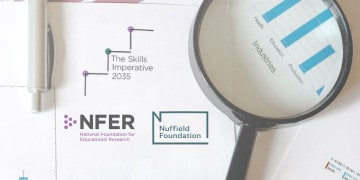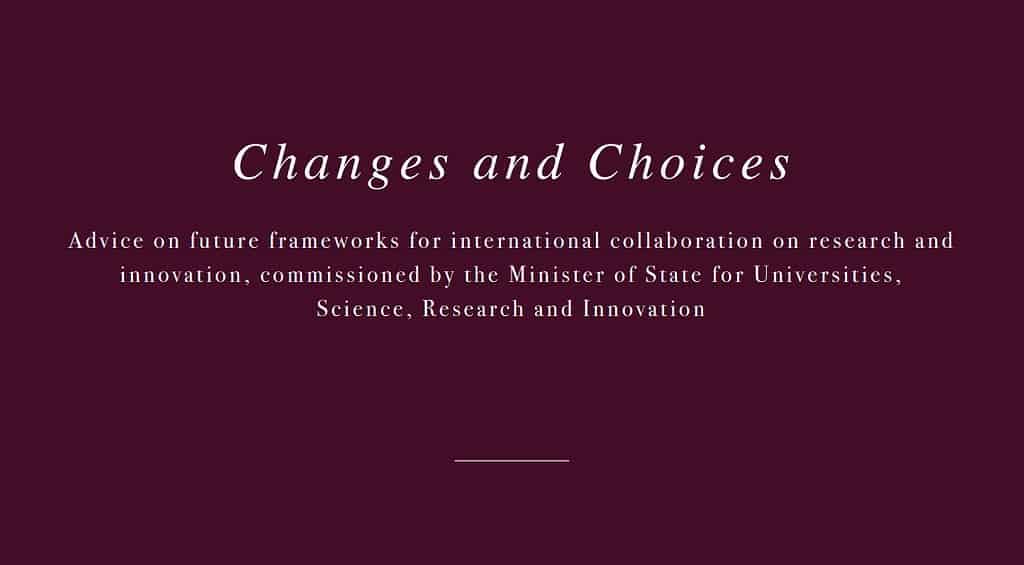Peter Finegold, Head of Education and Skills at the Institution of Mechanical Engineers, reflects on the new report Big Ideas: The Future of Engineering in Schools.
Academies must be responsive to Big Ideas
05 May 2016
What more could our schools do to present engineering as part of mainstream education, and how might the proposed educational reforms prevent this from happening?
Our recent report Big Ideas: The Future of Engineering in Schools suggests that if we wish to bring about change in Science Technology Engineering and Maths (STEM) education to meet the demands of a technological age, we need a common narrative and unified vision.
The rationale for the Big Ideas project is simple. After 30 years or more of trying to attract young people into engineering through various outreach activities, ambassadorial schemes, clubs and other voluntary initiatives, not much has changed. If we’re really serious about change we need to do something more mainstream and in a structured manner. We have not altered the number of young people going into engineering, neither have we increased the proportion of them who are girls – with percentages of female professional engineers stubbornly remaining in the single digits.
If we are going to have any effect on engineering in the future, we need a new approach. This probably means focusing more on the things that take place in the school classroom, lab or workshop – rather than relying solely on inspiration outside of the school building or the school day.
The Institution of Mechanical Engineers report, produced with the support of the Royal Academy of Engineering, reflects the views of leading engineering education experts and key stakeholders such as employers, parents and pupils, following a research seminar and wider consultation. It outlines ten ‘goals’ including that:
- pupils should be explicitly taught about engineering and the manufactured world from primary level upwards
- a broad curriculum should be maintained for all until the age of 18
- routes into engineering should be broadened by promoting flexible entry requirements for engineering degree courses.
But it isn’t just new ideas (or even combinations of old ideas) alone. To bring about change, we require a degree of consensus and leadership. With greater fragmentation imminent, we’re left wondering who will spearhead innovation in schools.
Successive governments have prioritised academic results, testing, league tables and ‘rigour’ in learning. Parents have been persuaded that these things are the most meaningful indicators of success of their children. Our research showed how parents stand out amongst all other interested parties as the least likely to advocate change. Parents, for example, were less inclined than employers, pupils and teachers to desire a nudge in the direction of applied learning, instead supporting the current balance between ‘learning’ and doing.
If parents are the most reticent to welcome change, how easy will it be to bring about strategically important reform? (Expert) parent governors may become a rarity, but parents, as cautious customers, are nevertheless prominent in shaping what is taught and how it is taught. Will the future of innovation in education be at the mercy of individual academy principals or the heads of academy chains, focused on the here and now? Who will be responsible for long-term planning and continuous improvement?
If we are to stand a chance of implementing these Big Ideas, or any others for that matter, it is time for a charm campaign. We must address those things that parents, teachers and Government care about. Every teacher wants their teaching to be enjoyed and valued by their pupils. Every parent and Government Minister wants every citizen to find gainful and fulfilling employment. The Government is already showing signs of wanting to attract more young people into engineering. Now therefore we have the opportunity to also influence parents, and indeed the wider public, that changing the narrative, broadening the curriculum and offering differing access routes into our profession, will release an enormous potential and benefit for us all.
Related articles

The Physiological Society’s policy team on the health challenges facing older workers and the urgent need to develop a strategy to ensure older people are happy and healthy at work.

Jo Reynolds, Director of Science and Communities at the Royal Society of Chemistry, on the RSC’s new summary report looking to unlock the potential of deep tech SMEs.

Lisa Morrison Coulthard, Research Director at the National Foundation for Education Research, on the Nuffield Foundation funded five year research programme providing insights into the essential employment skills needed for the future workforce

Sir Adrian Smith, Institute Director and Chief Executive of The Alan Turing Institute, and Graeme Reid, Professor of Science and Research Policy at UCL, set out the findings from their new independent report on international partnership opportunities for UK research and innovation